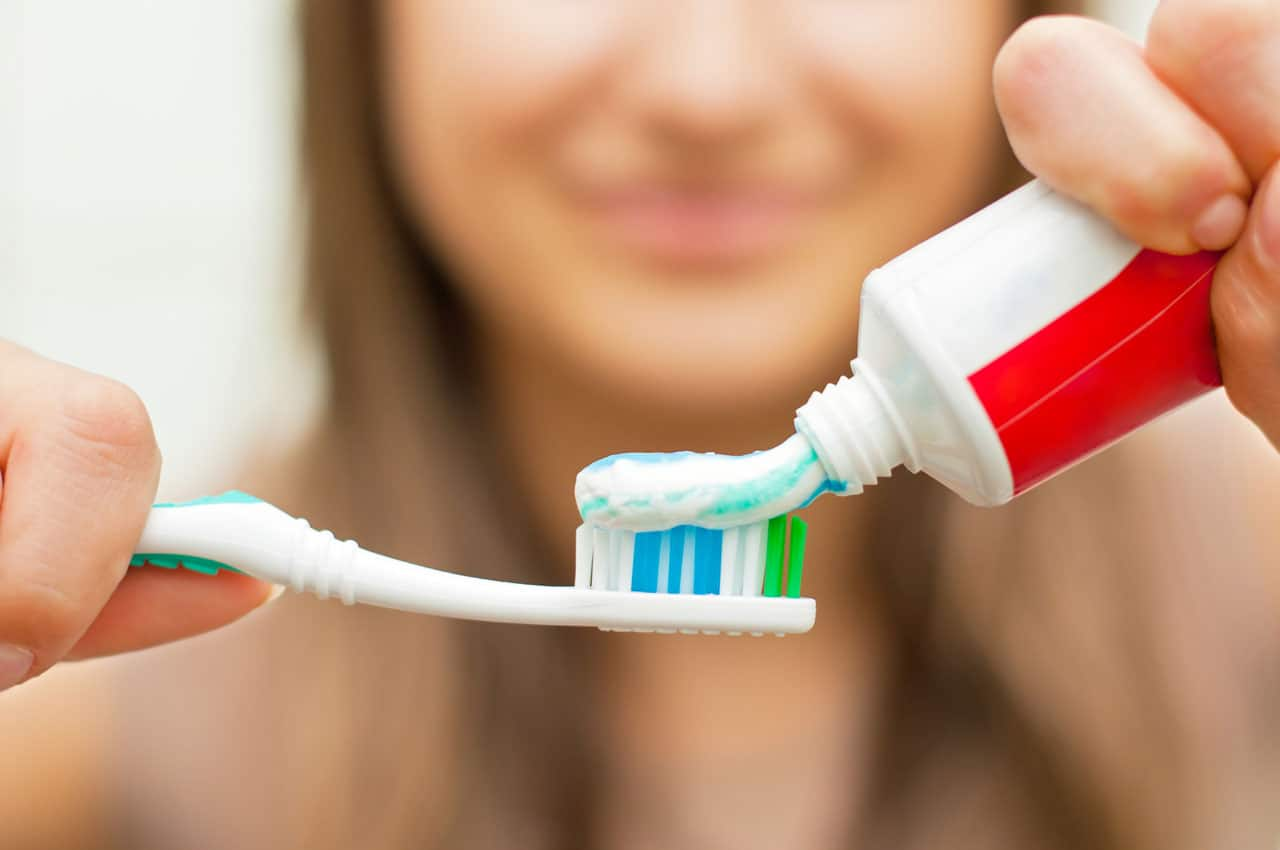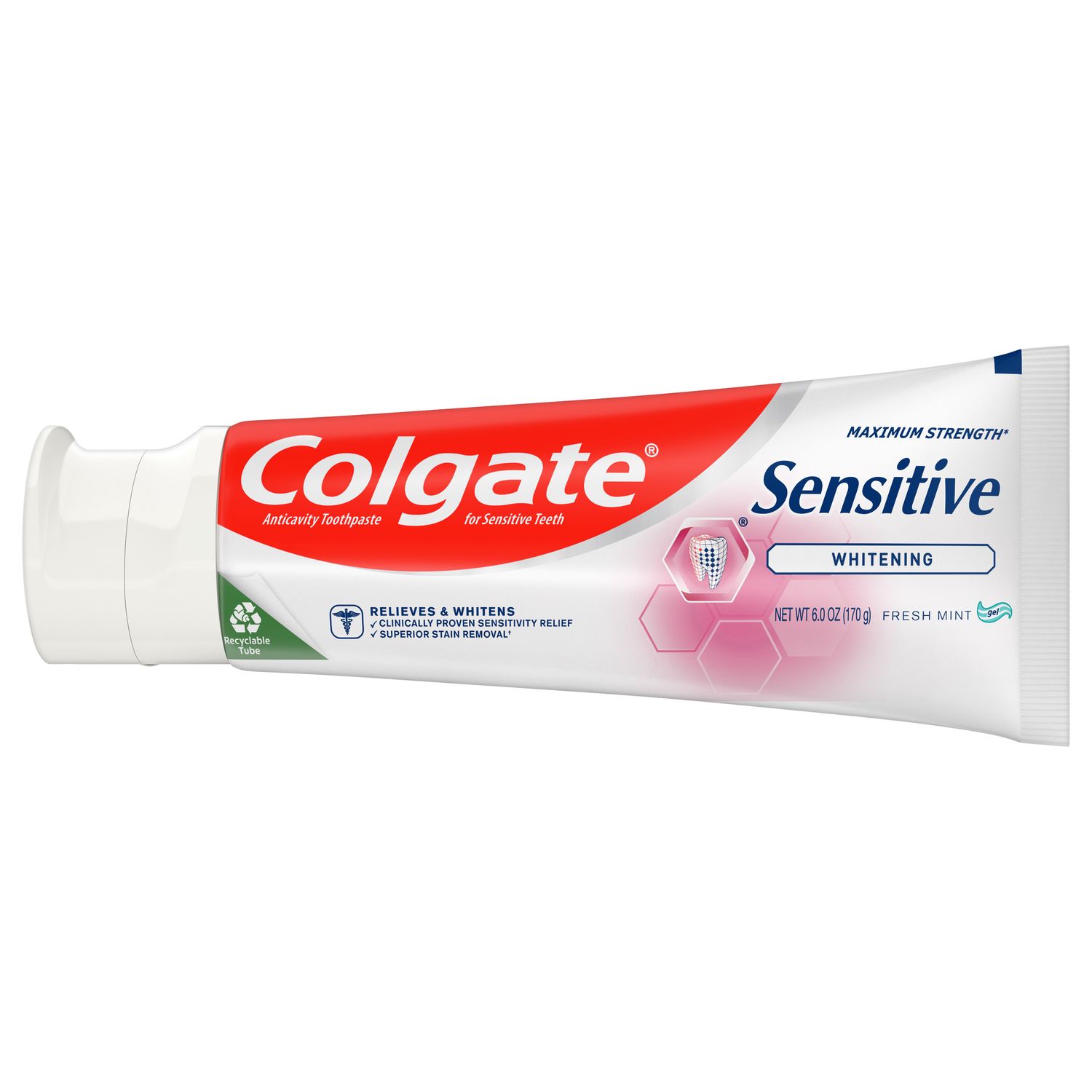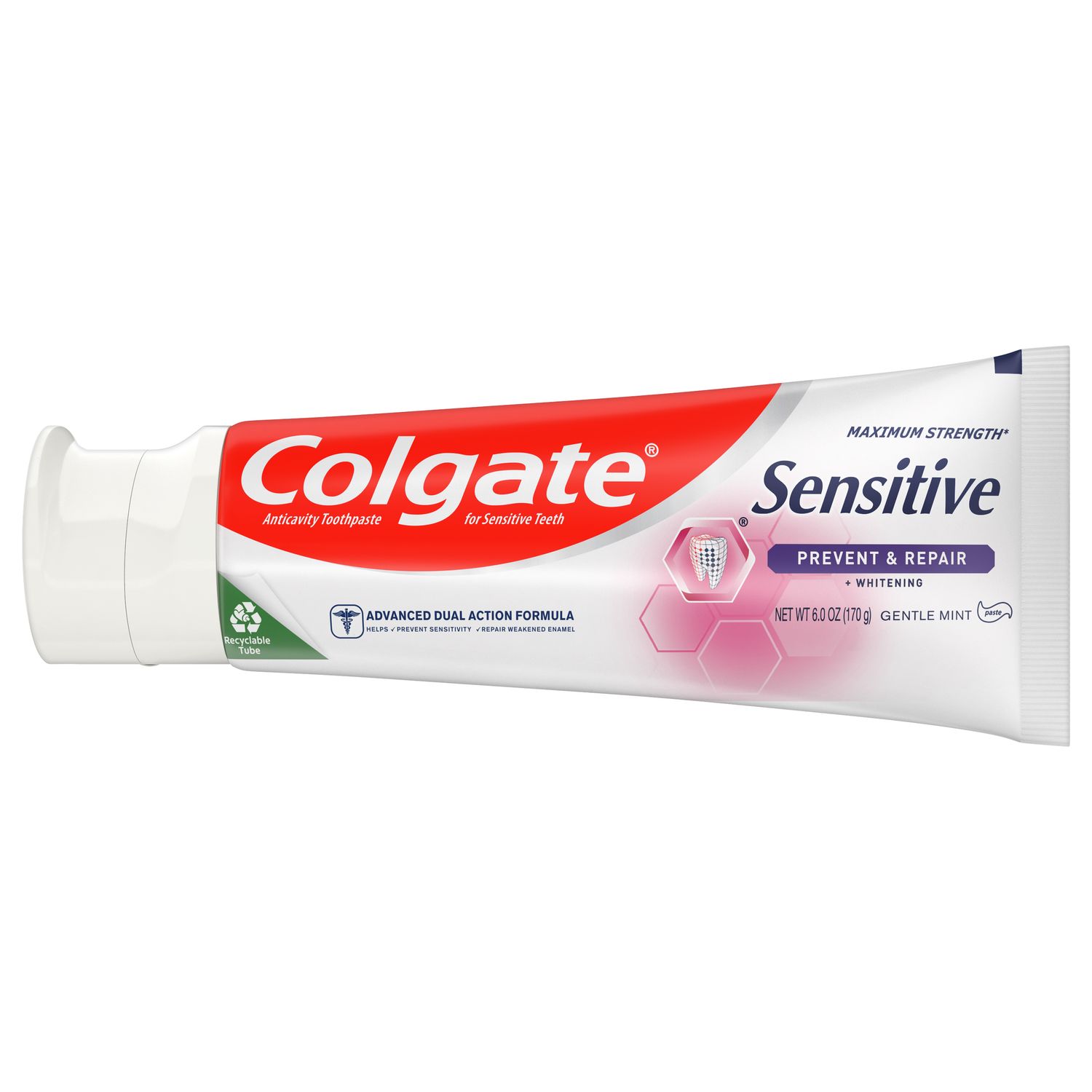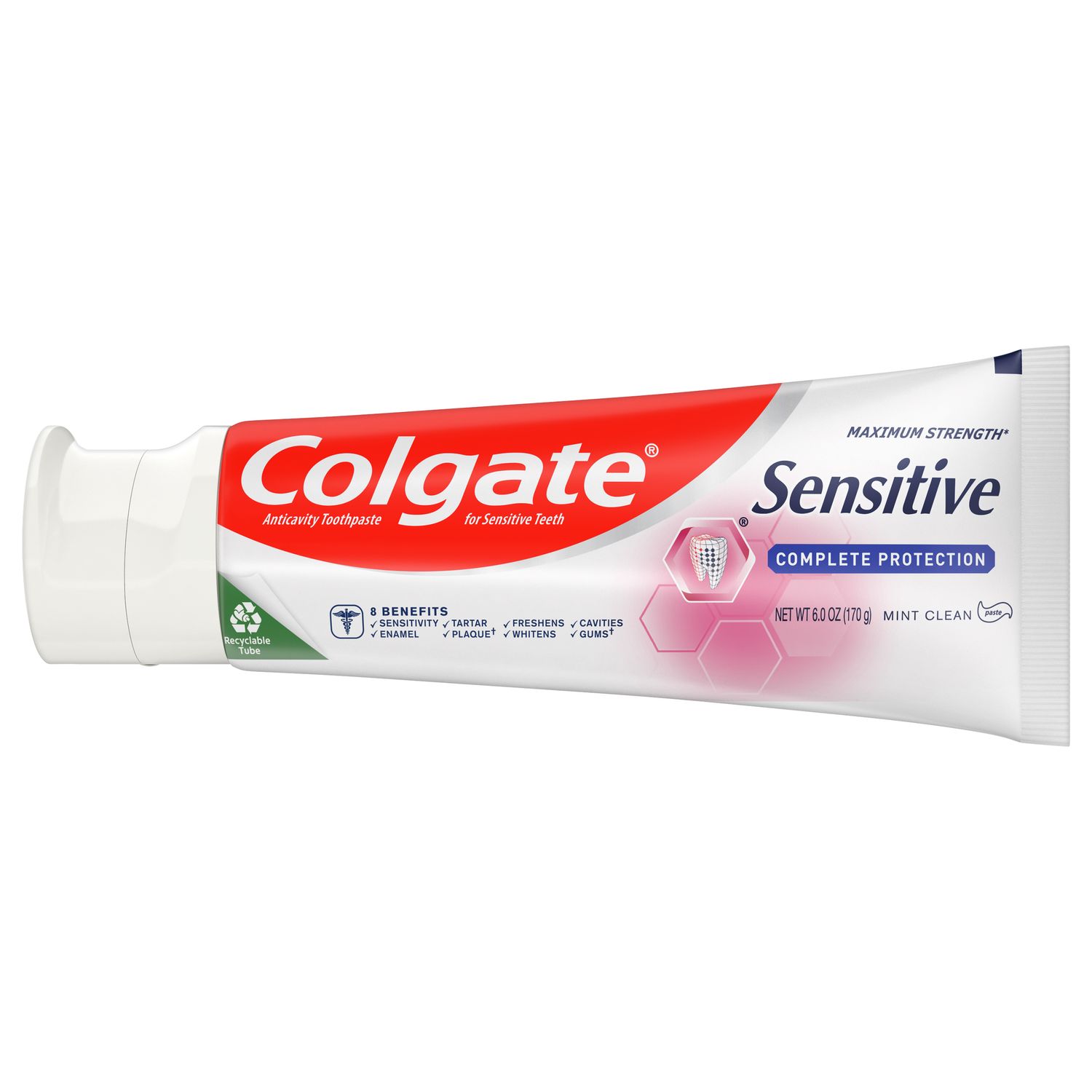Causes of Tooth Sensitivity
What causes tooth sensitivity to begin with? According to the American Dental Association (ADA), fractured teeth, gum disease and tooth decay can all lead to tooth sensitivity. Any one of these factors may cause wearing away of the tooth enamel and gum tissue, exposing the tooth root and the next layer of the tooth, known as the dentin. Normally, the enamel and dentin will protect and cover the underlying tooth nerves and tissues; however, if these outer layers are lost, the tooth's nerves can become more reactive.
Potassium Nitrate Dental Uses
As a study in The Journal of the American Dental Association (JADA) notes, potassium nitrate is a salt compound commonly found in toothpastes and mouthwashes. The most common potassium nitrate dental uses involve treating DH, as the compound is known to help reduce tooth sensitivity by calming the nerve fibers in the teeth.
What Does Potassium Nitrate Do in Toothpaste?
Potassium nitrate is a salt compound and a natural desensitizing agent. It blocks pain signals from your dental nerve to your brain, so you don’t feel any discomfort. By brushing your teeth with a toothpaste with potassium nitrate, you’re coating your teeth with a solution that reduces pain and sensitivity. Potassium nitrate calms the tooth's nerve activity so that you feel less discomfort when eating hot, cold, sweet or sticky foods.
Is Potassium Nitrate Safe in Toothpaste?
Potassium nitrate is a salt compound that naturally occurs in some vegetables such as celery, spinach, and cabbage. Numerous regulatory boards around the world consider potassium nitrate both safe and effective for the treatment of tooth sensitivity. The Journal of the American Dental Association (JADA) notes that potassium nitrate is generally well tolerated. Potassium nitrate is considered safe in low concentrations and most toothpastes designed for sensitive teeth only contain about 5 percent.
Potassium Nitrate vs. Potassium Fluoride
Potassium fluoride is another compound that has dental uses, but it's not the same as potassium nitrate. While potassium nitrate may be found in sensitivity toothpastes and mouthwashes, potassium fluoride is sometimes found in salt.
In areas around the world where water fluoridation isn't possible, some people consume salt that has been fortified with potassium fluoride, explains a review in the International Journal of Oral Health and Medical Research. As the ADA explains, fluoride‚ whether it's provided in tap water or in toothpaste works to strengthen the teeth and guard against tooth decay. So, like other fluoride compounds, potassium fluoride can help prevent cavities, while potassium nitrate can help ease dentin hypersensitivity.
How to Relieve Tooth Sensitivity
There are a variety of commercially available toothpastes that contain potassium nitrate and high levels of fluoride. Speak with your dentist about the right toothpaste formula for your particular needs.
If you have dentin hypersensitivity your dentist may also recommend the following treatments and at-home practices, as the Mayo Clinic outlines:
- In-office fluoride applications on the exposed or weakened areas of the teeth to help strengthen the enamel and reduce sensitivity.
- A gum graft procedure, which will replace the lost gum tissue and protect the exposed part of your tooth root.
- Reducing your intake of acidic foods and drinks, which can wear down the enamel over time and cause sensitivity.
- Using a soft-bristled toothbrush and brushing with gentle strokes
Tooth sensitivity is a common, treatable condition. Proper home care using desensitizing products recommended by your dentist or toothpastes made for sensitive teeth may help ease your symptoms. Speak with your dentist or dental hygienist to discuss the best treatment options and products for you.
This article is intended to promote understanding of and knowledge about general oral health topics. It is not intended to be a substitute for professional advice, diagnosis or treatment. Always seek the advice of your dentist or other qualified healthcare provider with any questions you may have regarding a medical condition or treatment.
ORAL HEALTH QUIZ
What's behind your smile?
Take our Oral Health assessment to get the most from your oral care routine
ORAL HEALTH QUIZ
What's behind your smile?
Take our Oral Health assessment to get the most from your oral care routine














